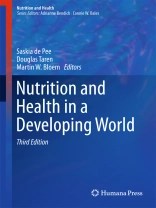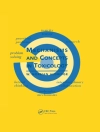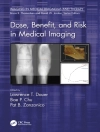This third edition reviews the epidemiology, policies, programs and outcome indicators that are used to determine improvements in nutrition and health that lead to development. This greatly expanded third edition provides policy makers, nutritionists, students, scientists, and professionals with the most recent and up-to-date knowledge regarding major health and nutritional problems in developing countries. Policies and programs that address the social and economic determinants of nutrition and health are now gaining in importance as methods to improve the status of the most vulnerable people in the world. This volume provides the most current research and strategies so that policy makers, program managers, researchers and students have knowledge and resources that they can use to advance methods for improving the public’s health and the development of nations. The third edition of
Nutrition and Health in Developing Countries takes on a new context where the word “developing” is now a verb and not an adjective.
Tabela de Conteúdo
Section I: History of Nutrition.- Nutrition and Development: Historical Perspective.- Section II: Contextualizing International Nutrition: Considering Benefit Cost, Evidence Base and Capacity.- Nutrition Evidence in Context.- Growing Capacity to Deliver Nutrition in Post 2015 World.- Section III: Malnutrition, Nutrients and (Breast) Milk Explained.- Malnutrition Spectrum.- Child Growth and Development.- Overweight and Obesity.- Nutrient Needs and Approaches to Meeting Them.- Vitamin A.- Iron.- Zinc.- Iodine.- Vitamin D.- Essential Fatty Acids.- Role or Milk in Nutrition.- The Role of Breastfeeding Protection, Promotion, and Support in a Developing World.- Section IV: Tuberculosis, HIV, and the Role of Nutrition.- Tuberculosis.- HIV.- Tuberculosis in Relation to Nutrition.- HIV and HIV/TB Co-infection in Relation to Nutrition.- Section V: Nutrition and Health in Different Phases of the Life Cycle.- Reproductive Health.- Maternal Nutrition and Birth Outcomes.- Small for Gestational Age:Scale and Consequences for Mortality, Morbidity, and Development.- Development Disabilities.- Adolescent Health and Nutrition.- Nutrition in the Elderly from Low and Middle Income Countries.- Section VI: Tackling Health and Nutrition Issues in an Integrated Way in the Era of the SDGS.- Evaluation of Nutrition Sensitive Interventions.- Integrated Approaches to Health and Nutrition: Role of Communities.- Nutrition in Emergencies.- Ending AIDS by 2030: Partnerships and Linkages with SDG 2.- Section VII: Trends in Urbanization and Development, Impacts on Food Value Chains and Consumers, and Private Sector Roles.- Urbanization Patterns and Strategies for Ensuring Adequate Nutrition.- Urbanization, Food, Security and Nutrition.- The Impact of Supermarkets on Nutrition and Nutritional Knowledge: A Food Policy Perspective.- Value Chain Focus on Food and Nutrition Security.- Role of Foundations and Initiatives by the Private Sector for Improving Health and Nutrition.- Section VIII: Ethics: Critical to Making Progress in Public Health.- Ethics in Public Health Research.
Sobre o autor
Saskia de Pee, Ph D
Senior Technical Advisor, Nutrition Division, UN World Food Programme
Rome, Italy
Adjunct Associate Professor, Friedman School of Nutrition Science and Policy, Tufts University
Boston, MD
Douglas Taren, Ph D
Professor of Public Health
Mel and Enid Zuckerman College of Public Health
University of Arizona
Tucson, AZ
Martin W. Bloem, MD, Ph D
Senior Nutrition Advisor/ WFP Global Coordinator UNAIDS, United Nations World Food Programme
Rome, Italy
Adjunct Associate Professor, Department of International Health, Johns Hopkins Bloomberg School of Public Health
Baltimore, MD
Adjunct Associate Professor, Friedman School of Nutrition Science and Policy, Tufts University












